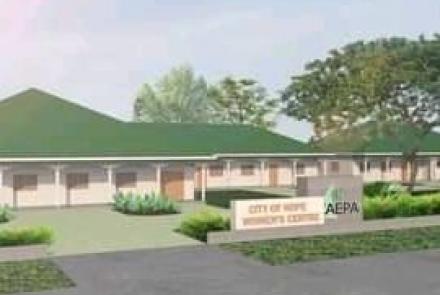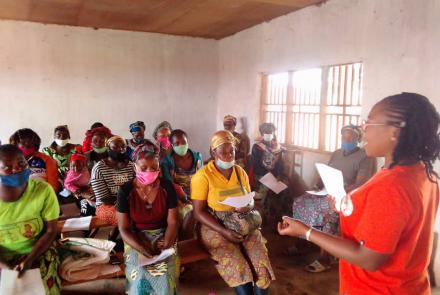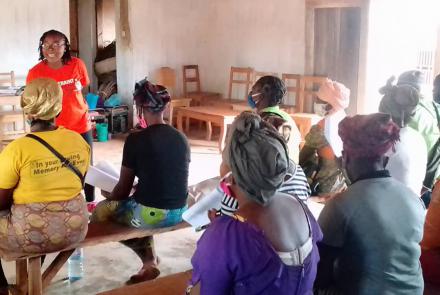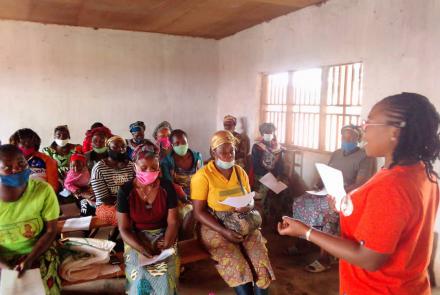Computer Lab and training for IDPs in Cameroon North West Region
The civil conflict in North-West and South-West regions of Cameroon (popularly known as the ‘Anglophone crisis) is ongoing since 2017. The crisis has resulted in massive displacements of the human population, resulting in significant loss of human lives and henceforth resulted in a large population of internally displaced persons (IDPs). The economy is hit massively with the dilapidation of primary and tertiary sectors in the two regions since 2016. Consequently, there is also immense pressure on human resource development infrastructure. Multi-Sector Needs Assessment (MSNA) Survey of 2019 by OCHA (Office for the Coordination of Human Affairs) revealed as many as 271,167 IDPs only in the North-West region. 44.5% of the IDPs in the two regions are children and youth population. The number of orphans in this group is also significant, alongside those with poverty and desolation. UNICEF has estimated that more than 855,000 children are out of schools in both regions combined as almost 90% of primary schools and 77% of public secondary schools have stopped functioning due to the conflict. Amongst these, around 96,472 girls and 95,031 boys are internally displaced in both the regions together, pruning them to extreme vulnerability and poverty. Their livelihood is marginal, the desperation is strong, the effects are destructive on society-economy-environment nexus.
Challenge
Impoverished Cameroonian children, ages 5-18, account for most of the more than ---- children not attending or prematurely dropping out of school. Young adults without computer skills are disadvantaged in seeking employment opportunities. The cycle of poverty continues as knowledge and skills become seemingly unattainable in an ever-advancing technological world. Access to obtain technological skills is prohibitive for the impoverished who view such skills as a luxury instead of a necessity.
Solution
CAEPA envisions with support from a team of volunteers to set up a computer lab at the office. Out-of-school children currently undergoing literacy classes at CAEPA and their peers will be trained on computer literacy as well as be introduced into online learning. CAEPA will work in collaboration with volunteers and the Ministry of Basic and secondary education to translate the school curriculum into online learning modules. 100Participants will go through the program annually based on their current classes following the Cameroon government educational calendar and will be evaluated after completion of the different modules. The program will be designed to have both morning and afternoon shifts (8 am- 12 pm and 2 pm-5 pm daily except on weekends). Weekends will be opened mostly for private learners. Participants through informal learning will be presented to write public examinations after their assessments at the end of each learning period. Both local and international volunteers will support in writing the curriculum and teaching participants during learning. At the start of the project, a project lunch will be carried out with various stakeholders at local government and education sector to educate them on the project and seek their support.
Access to learn and apply skills demonstrated in digital computer labs provide students with opportunities to advance in technological skills. The project equips digital labs with fifteen laptops and accessories in the center. Instructors with up-to-date curriculum will provide participants access to technological training which is critical to empowering students with marketable skills in today's technology-saturated industries and commerce.
Long-Term Impact
Computer literacy has advanced to a fundamental skill of communication, education, and commerce. The development of technological knowledge and skills empowers the learner a competitive advantage with educational opportunities reducing the school dropout rate and increasing collegiate participation. The realistic opportunity to eradicate poverty through advancing viable skill sets among youth impacts local, national, and global communities as participants are empowered to seek sustainable careers.
Sustainability
The computer lab will be open to the community for well-to-do individuals to pay and benefit from its services. The center will also offer documentation services. The resources generated through these services will be plow back into the center to maintain equipment and replace worn-out equipment and also provide a stipend for the trainer in charge.





